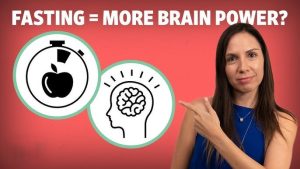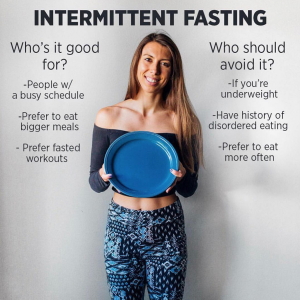Introduction Intermittent fasting (IF) has become a popular way to lose weight, boost metabolism, and improve overall health. But how does it work? Unlike regular diets that tell you what to eat, intermittent fasting focuses on when you eat. It involves cycling between periods of eating and fasting, helping your body burn fat and trigger
Introduction
Intermittent fasting (IF) has become a popular way to lose weight, boost metabolism, and improve overall health. But how does it work? Unlike regular diets that tell you what to eat, intermittent fasting focuses on when you eat. It involves cycling between periods of eating and fasting, helping your body burn fat and trigger healthy processes.
Research shows that intermittent fasting can improve insulin sensitivity, enhance brain function, and even help you live longer. In this article, we will look at how intermittent fasting works, its benefits, different methods, and tips for success.
What is Intermittent Fasting?

Image by: Yandex.com
The Concept of Fasting
Intermittent fasting is an eating pattern where you alternate between eating and fasting. It doesn’t tell you what foods to eat but rather when to eat them.
When you fast, your body goes through changes that improve how it uses energy, repairs cells, and burns fat. Throughout history, humans have learned to function without eating all the time, making fasting a natural process.
How Intermittent Fasting Works

Image by: Yandex.com
The Body’s Response to Fasting
When you fast, your body experiences several changes:
- Blood sugar levels drop, which lowers insulin and helps burn fat.
- Human Growth Hormone (HGH) levels increase, supporting muscle growth and fat loss.
- Cellular repair processes, like autophagy, begin, helping remove damaged cells and toxins.
- Changes in gene expression improve stress resistance and longevity.
These changes make intermittent fasting effective for weight management and beneficial for overall health.
Types of Intermittent Fasting

Image by: Yandex.com
There are different methods of intermittent fasting, each with its own benefits depending on your lifestyle and goals.
1. 16/8 Method
This method involves fasting for 16 hours and eating during an 8-hour window.
Common eating window: 12 PM – 8 PM.
Great for beginners and those looking to lose fat.
2. 5:2 Diet
You eat normally for five days and reduce your calorie intake (to 500-600 calories) on two non-consecutive days.
This helps with gradual weight loss.
3. Eat-Stop-Eat
This involves a full 24-hour fast once or twice a week.
It aids in cellular repair and detoxification.
4. Alternate-Day Fasting
You fast every other day while eating normally on non-fasting days.
It can be tough but is effective for quick weight loss.
5. Warrior Diet
You fast for 20 hours and then eat during a 4-hour window.
Inspired by ancient warrior habits, it helps with hormonal balance and endurance.
Each method offers different benefits, allowing you to choose what works best for you.
Benefits of Intermittent Fasting

Image by: Yandex.com
1. Aids in Weight Loss
Fasting lowers insulin and increases fat-burning hormones, helping you lose weight without strict calorie counting.
2. Improves Insulin Sensitivity
Regular fasting can lower blood sugar levels, reducing the risk of type 2 diabetes.
3. Enhances Brain Function
Fasting boosts Brain-Derived Neurotrophic Factor (BDNF), which improves memory and learning.
4. Supports Cellular Repair
During fasting, autophagy increases, helping cells remove waste and reduce inflammation.
5. Boosts Heart Health
Fasting lowers bad cholesterol (LDL) and improves heart health.
6. Reduces Inflammation
Intermittent fasting decreases chronic inflammation, linked to conditions like arthritis and Alzheimer’s.
7. Promotes Longevity
Some studies suggest that intermittent fasting can increase lifespan due to better cellular repair.
8. Improves Digestion
Fasting gives your digestive system a break, helping reduce bloating and gut issues.
Common Misconceptions About Intermittent Fasting

Image by: Yandex.com
1. Fasting Leads to Muscle Loss
Many believe fasting makes you lose muscle, but it can actually preserve muscle by increasing HGH and using stored fat.
2. Fasting Slows Down Metabolism
In reality, metabolism can increase during short-term fasting due to higher norepinephrine levels.
3. Fasting Causes Nutrient Deficiencies
Eating a balanced diet during eating periods can prevent nutrient deficiencies.
4. You Need to Eat Breakfast for Energy
The idea that breakfast is necessary for energy is a myth; the body can use stored energy efficiently.
Tips for Successful Intermittent Fasting

Image by: Yandex.com
1. Start Gradually
Begin with a 12-hour fasting window before moving to longer periods like 16/8.
2. Stay Hydrated
Drink water, herbal tea, and black coffee to help with hunger and support metabolism.
3. Prioritize Nutrient-Dense Meals
Eat protein, healthy fats, fiber, and complex carbs to maintain energy levels during fasting.
4. Exercise While Fasting
Light exercises like walking or yoga can enhance fat burning during fasting.
5. Listen to Your Body
If fasting causes dizziness or excessive hunger, adjust your fasting window or try a different method.
How to Start Intermittent Fasting

Image by: Yandex.com
If you’re new to intermittent fasting, it’s important to start slowly. Begin by choosing a method that seems easiest for you. For example, you might try the 16/8 method by skipping breakfast. Gradually, your body will get used to the new eating schedule. Make sure to listen to your body and pay attention to how you feel. If you experience any discomfort, it may be helpful to adjust your fasting times or speak with a healthcare professional.
Effects on Metabolism
Intermittent fasting can help boost metabolism. When you fast, your body burns stored fat for energy instead of using food. This can help with weight loss and improve how your body uses energy. Fasting may also improve insulin sensitivity, which helps keep blood sugar levels stable. A better metabolism can lead to more energy and better overall health.
Fasting and Brain Health

Image by: Yandex.com
Fasting may also be good for the brain. Studies suggest that fasting can support brain function and protect against diseases like Alzheimer’s. When you fast, your body starts a process called autophagy, which helps clean out damaged cells. This may improve memory and brain health over time. Many people who fast say they feel more focused and alert.
Fasting for Longevity
Some research shows that fasting might help people live longer. It reduces inflammation, improves heart health, and helps the body repair itself. In some animal studies, fasting has been linked to a longer lifespan. While more research is needed, many believe that fasting can help slow down aging and improve overall well-being.
Listening to Your Body
It’s essential to listen to your body while practicing intermittent fasting. Some days may feel easier than others, and that’s okay. If you feel overly hungry, tired, or weak, consider adjusting your fasting hours or taking a break from fasting altogether. Everyone’s body reacts differently, and finding what works for you is crucial. Remember, the goal is to improve your health, not to stress yourself out.
Who Should Avoid Fasting?

Image by: Yandex.com
Intermittent fasting is not for everyone. Pregnant women, children, and people with certain medical conditions should not fast without talking to a doctor. If you have diabetes or low blood sugar, fasting could be risky. It’s important to listen to your body and make sure fasting is safe for you before starting.
Challenges of Intermittent Fasting
Despite its benefits, intermittent fasting can come with challenges. Some people may find it hard to stick to a fasting schedule or may feel hungry during fasting periods. It can also be difficult for those with busy lifestyles or social commitments that revolve around meals. Additionally, not everyone may respond the same way to fasting, and it’s important to listen to your body and adjust as needed.
The Future of Intermittent Fasting

Image by: Yandex.com
The future of intermittent fasting looks promising. As more studies are conducted, we will learn more about its long-term effects and how it can fit into different lifestyles. With growing interest in health and wellness, intermittent fasting may continue to gain popularity. People are likely to keep exploring new methods and combinations of fasting that best suit their needs, making it a flexible approach to healthy living.
This format provides clear and simple explanations for each section, making it easy to understand the various aspects of intermittent fasting.
Comparative Table: Comparing Intermittent Fasting Methods
| Fasting Method | Fasting Window | Eating Window | Best For |
|---|---|---|---|
| 16/8 Method | 16 hours | 8 hours | Beginners, weight loss |
| 5:2 Diet | 2 non-consecutive days | Normal eating for 5 days | Gradual weight loss |
| Eat-Stop-Eat | 24 hours | Normal eating on other days | Deep cellular repair |
| Alternate-Day Fasting | Every other day | Normal eating in between | Rapid fat loss |
| Warrior Diet | 20 hours | 4 hours | Athletes, muscle building |
This table provides a quick comparison of different fasting methods, helping you choose the best one for you.
Conclusion
Intermittent fasting is more than just a trend it’s a science-backed lifestyle choice with real health benefits. By understanding how fasting works, you can make smart choices to lose weight, boost metabolism, and improve overall health.
Whether you choose the 16/8 method, 5:2 diet, or alternate-day fasting, sticking to your plan and eating nutrient-rich foods are essential for getting the most out of fasting.
Call to Action
Ready to start intermittent fasting? Pick a method that fits your lifestyle and begin your journey to better health, weight management, and a longer life.
















